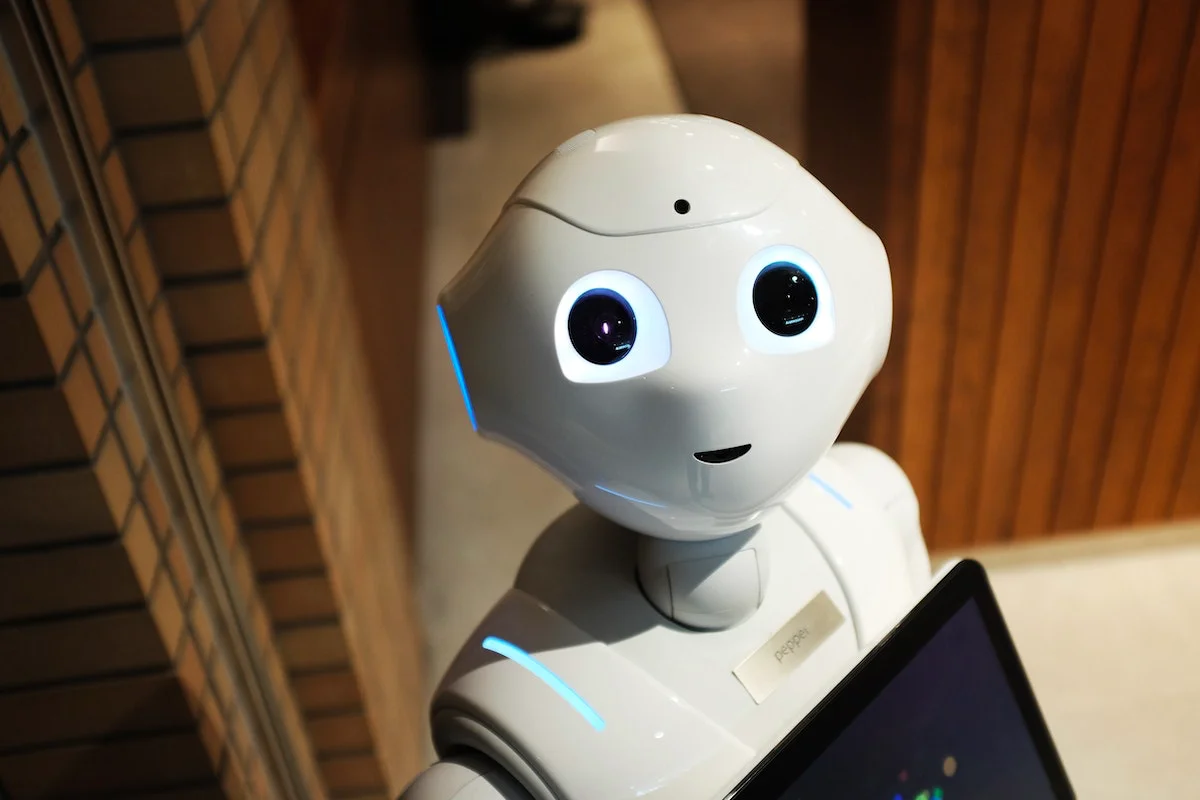

Are you worried that your job as a nurse will become like something out of a science fiction movie?
The idea of robots taking over healthcare can be scary but don’t worry.
The reality is far from a futuristic world where robots replace nurses completely.
While robots are being used more in healthcare, their main purpose is to help and improve patient care, not to replace the important skills and qualities that nurses have.
In this article, we will explore the truth about robots in nursing and explain why you don’t need to be afraid of being replaced by them.
Let’s dive in and find out what’s really going on in the healthcare industry.
Short answer: No, robots will not take over all nursing tasks.
As a nurse, you may have concerns about the increasing use of robots in healthcare.
However, it is important to recognize that the role of robots in nursing is primarily to assist and enhance patient care, rather than completely replace you.
Robots are designed to perform specific tasks, such as medication dispensing or vital sign monitoring, but they lack the critical thinking, empathy, and human touch that are vital components of your nursing care.
Nursing goes beyond technical procedures and encompasses the holistic care of patients. You possess the skills to assess complex patient situations, make clinical judgments, and provide emotional support.
These essential aspects of nursing cannot be replicated by robots, as they require your intuition and ability to adapt to unique patient needs.
Furthermore, healthcare is dynamic and unpredictable, with situations that often require immediate decision-making and intervention.
You possess the expertise to navigate these complexities and collaborate with interdisciplinary teams to ensure the best possible outcomes for patients.
Robots, on the other hand, lack the cognitive abilities and experience to handle such intricate scenarios.
Subscribe now and get 15% OFF your personalized Tumbler featuring your name/photo.

Rather than fearing job displacement, you should focus on embracing technological advancements and developing skills that align with the evolving healthcare landscape.
By adapting to a robot-assisted environment, you can leverage technology to streamline certain tasks, allowing you to dedicate more time to patient interaction, education, and critical thinking.
In conclusion, while robots have their place in healthcare, they cannot replace the fundamental role that you play as a nurse.
The unique blend of your compassion, critical thinking, and clinical expertise is indispensable in providing high-quality care.
You should not worry about being replaced by robots, but instead, view them as tools that can augment your practice and contribute to improved patient outcomes.
In a robot-assisted healthcare environment, you may wonder what skills are needed to thrive in this evolving landscape as a nurse.
As technology continues to advance, it is crucial to embrace these changes and develop the skills necessary to complement the role of robots.
First and foremost, you should focus on enhancing your adaptability to new technologies.
Being open to learning and familiarizing yourself with various robotic systems will allow you to effectively collaborate with them in providing patient care.
Familiarity with robotic interfaces, software, and hardware will enable you to navigate and utilize these tools efficiently.
Additionally, developing proficiency in data analysis and interpretation will be valuable in a robot-assisted healthcare setting.
As robots collect and generate vast amounts of patient data, you can leverage your analytical skills to make informed decisions and provide personalized care.
Your ability to interpret and synthesize this data, along with your clinical expertise, will ensure the best possible outcomes for your patients.
Furthermore, communication and collaboration skills are vital in a robot-assisted healthcare environment.
While robots can assist with certain tasks, effective communication with patients, families, and interdisciplinary teams remains essential.
You possess the ability to establish rapport, convey empathy, and provide emotional support, which are crucial aspects of nursing care that robots cannot replicate.
Collaborating with robots as part of a healthcare team requires clear communication, effective coordination, and seamless integration of their capabilities into the overall care plan.
Critical thinking and problem-solving skills will continue to be in high demand.
While robots can perform routine tasks, complex patient situations and unexpected complications may require your expertise.
Your ability to assess, analyze, and respond to these situations with sound judgment and adaptability will ensure the provision of safe and effective care.
In conclusion, as a nurse in a robot-assisted healthcare environment, your skills will continue to be invaluable.
By focusing on adaptability, data analysis, communication, collaboration, and critical thinking, you will position yourself to thrive in this evolving landscape.
Remember, while robots may assist in certain tasks, it is your human touch, clinical judgment, and compassionate care that make a significant difference in the lives of your patients.
Embrace the opportunities that technology brings and continue to be the essential and irreplaceable healthcare professional that you are.
You may be curious about how robots will impact patient care and outcomes in healthcare. As technology continues to advance, robots can play a significant role in enhancing various aspects of patient care.
One key way robots can positively impact patient care is through increased efficiency and accuracy.
Robots can assist in performing routine tasks such as medication administration, monitoring vital signs, and carrying out repetitive procedures. By automating these tasks, robots can reduce the likelihood of human error and enhance precision, leading to improved patient safety and outcomes.
Moreover, robots can provide valuable support in patient monitoring and data collection. They can continuously gather and analyze patient data, detecting subtle changes or trends that may go unnoticed by human observation alone.
This real-time data analysis can enable early detection of complications, prompt interventions, and proactive management of patient conditions.
Ultimately, this can lead to better patient outcomes and improved overall quality of care.
In addition to efficiency and data analysis, robots can contribute to patient education and engagement. They can serve as interactive tools to provide information, instructions, and reminders to patients about their treatment plans, medication schedules, and self-care activities.
By empowering patients with knowledge and promoting adherence to healthcare regimens, robots can enhance patient engagement and facilitate better self-management of their health.
However, it is important to acknowledge that robots have their limitations.
While they excel in performing precise tasks, they lack the human touch and emotional connection that are integral to patient care.
Building rapport, providing empathy, and offering emotional support are vital aspects of nursing care that robots cannot replicate.
Therefore, human-nurse interaction remains crucial in delivering holistic care and addressing the emotional needs of patients.
In conclusion, robots have the potential to positively impact patient care and outcomes by enhancing efficiency, accuracy, data analysis, and patient engagement.
They can contribute to improved safety, early detection of complications, and better patient education.
However, it is important to strike a balance between the capabilities of robots and the unique qualities that human nurses bring to patient care.
By leveraging the strengths of both robots and human nurses, we can strive for optimal patient outcomes and provide holistic, compassionate care in the ever-evolving healthcare landscape.
No, nurses will not face job loss due to robots.
The role of robots in healthcare is to augment and support the work of nurses, rather than replace them entirely.
Nurses possess a distinct set of skills and capabilities that are indispensable in providing patient care.
Nursing involves a combination of critical thinking, clinical expertise, and problem-solving abilities that robots cannot replicate.
Nurses are skilled in assessing and interpreting complex patient situations, making informed clinical judgments, and adapting care plans accordingly.
These cognitive skills are essential in delivering high-quality care and cannot be fully taken over by robots.
Moreover, nursing requires emotional intelligence and the ability to provide compassionate care.
Robots may assist with certain technical tasks, but they lack the human connection and empathy that patients often seek.
Nurses have the unique ability to establish therapeutic relationships, provide emotional support, and advocate for their patient’s well-being, which cannot be replaced by robots
Additionally, healthcare is a dynamic field that often presents unpredictable and rapidly changing situations.
Nurses are trained to adapt quickly, respond to emergencies, and collaborate with healthcare teams to deliver timely and effective interventions.
The critical decision-making and teamwork skills that nurses possess are essential for providing safe and comprehensive care.
Rather than displacing nurses, robots can assist with specific tasks, such as data collection and routine procedures, freeing up time for nurses to focus on more complex aspects of patient care.
This collaboration between nurses and robots can lead to improved efficiency and patient outcomes.
In conclusion, nurses should not fear job loss to robots.
The unique combination of cognitive, emotional, and interpersonal skills that nurses possess is irreplaceable in healthcare.
As technology continues to evolve, nurses will continue to play a vital role in providing compassionate and comprehensive care to patients.
No, robots will not replace you as a nurse.
The invaluable skills and qualities you bring to patient care, such as critical thinking, empathy, and human connection, cannot be replicated by machines.
While robots can assist with specific tasks, they lack the holistic approach and adaptability that nursing requires.
Embracing technology and developing proficiency in robot-assisted healthcare will enhance your practice and improve patient outcomes.
The future lies in collaboration between nurses and robots, where you will continue to play a vital role in providing personalized, compassionate care.
Your expertise and unique contributions will always be in demand in the evolving healthcare landscape.


We take on average 4 working days to ship.
Standard shipping: 7-21 days.
Fast Shipping: 3-8 days

